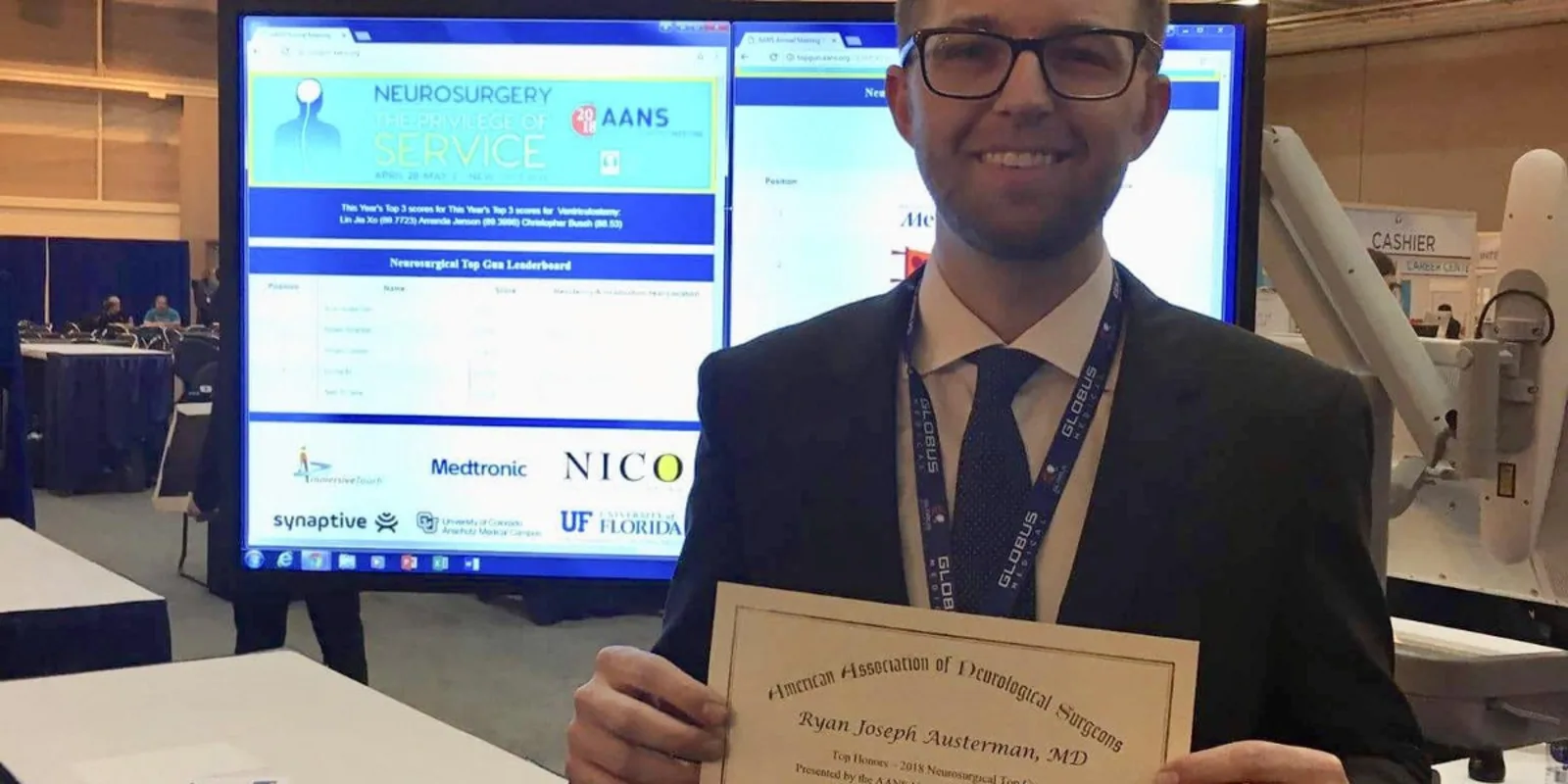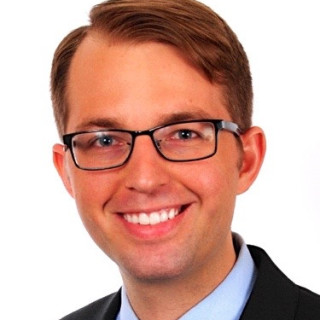As I near the end of my PGY-2 year at Houston Methodist Hospital’s neurosurgery residency, I had the opportunity to attend the 2018 American Association of Neurological Surgeons (AANS) Annual Scientific Meeting in New Orleans last week. The meeting brings together thousands of neurosurgeons for a week of lectures, industry exhibitions, and networking.
At the meeting, I was awarded the title of Neurosurgery’s Top Gun. The AANS Neurological Top Gun Competition is a yearly tradition where residents and medical students compete in a series of stations that are designed to test one’s neurosurgical skills and knowledge via simulated procedures. Each station is scored using metrics such as accuracy, time, and skill. At the end of the challenge, the scores are tallied at both the individual and program levels.

Ever since I was a medical student interested in Neurosurgery, I aspired to participate in this competition and win. I succeeded at the individual level, and Houston Methodist won at the program level, marking the second time in five years that we have had this honor.
The reason for our success comes down to the quality of our training: The outstanding clinical opportunities made available through my training program at Houston Methodist made most of the challenges seem routine, even as a junior resident. The stations consisted of fundamental neurosurgical challenges—from placing an external ventricular drain to lumbar pedicle screws — as well as more advanced techniques that I am well-acquainted with, thanks to a training program that prides itself on keeping up with the latest advances in the field.
My chairman Dr. Britz has been an advocate for some of the cutting-edge technologies showcased in the competition, such as the NICO BrainPath and Synaptive robotic exoscope, which provided an extra layer of confidence and familiarity when I was participating in these challenge stations. Our program aims to utilize the latest equipment in robotics, instrumentation, and navigation pertaining to both cranial and spinal neurosurgical cases, which is crucial given the fast pace of technological advancement.
There is more to a residency program than the sheer number of cases and the teaching. One’s happiness at a given institution and their fit with the other residents are also major considerations. I love my co-residents and am appreciative for what they have taught me thus far. I believe that our efficiency and camaraderie at work mostly stems from a stronger friendship bond formed outside the hospital. The tricks of the trade my fellow residents and the attendings have taught me so far are the most significant contributions to our success in the competition this year.
Minimizing burnout is another necessity for success in residency, and our program director Dr. Baskin helps facilitate this immensely. Despite being a junior resident on a busy neurosurgical service, my schedule allows me to spend time with my incredibly supportive wife, Alicia, engage in interests outside of Neurosurgery, and participate in educational conferences throughout the year.
I thought I would share some knowledge that has been helpful to me so far as a resident. I was told as an intern that learning surgery is an exponential process that starts very slowly due to the foundation of knowledge one needs to possess before becoming proficient with simple techniques. As a result, it can be frustrating when you realize early on that tasks that appear simple as an observer are actually quite difficult when trying to do them for the first time. Instead of being disheartened by this, accept that it is normal early on and let it motivate you to practice as much as possible.
An attending taught me in medical school to learn the name of one surgical instrument per day. This is the language spoken in the OR. The sooner you are fluent in it, the sooner you will feel like you belong there, and the sooner others will feel the same way about you.
Be humble and accept that you know less than you think you do. As an extension of this point, realize that you can find knowledge in places besides your attendings and senior residents — your scrub techs can be very helpful and teach you about unfamiliar instruments. Your Neuroscience ICU nurses can teach volumes about critical care in the middle of the night.
Take care of yourself physically and mentally, and you will be happier, find more pleasure in the work you do, take better care of patients, and be a better colleague.
My last piece of advice to anyone aspiring to win the Top Gun Competition in the future is to do a lot of surgery, and attend a residency program that makes this possible.
Dr. Ryan Austerman is a second year neurosurgery resident at Houston Methodist Hospital.”






